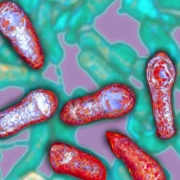Fast Guide to Fasting
The same guy who said, “Our food should be our medicine and our medicine should be our food,” also recommended abstaining from food and drink for patients who exhibited certain sickness symptoms. The key phrase in the 5th-century Greek Physician Hippocrates’s prescription, however, is “to patients who exhibit certain symptoms.” This implies that fasting might not necessarily be for everyone or at any time. This naturally elicits a series of follow-up questions. Is fasting right for me? And, if so, when should I fast, and what is the best type of fasting?
Here’s the skinny on fasting!
Is Fasting a Fad?
Fasting is not a fad. If you look back at the history of fasting, you will find that it is a universal practice that has been used for therapeutic, religious, ceremonial, and ethical purposes for thousands of years. It is also something that is deeply ingrained in our evolutionary history. Long before agriculture, refrigerators, and Uber Eats, early humans lived on a feast or famine diet as food was not always readily available. For this reason, our bodies evolved to store energy and access these energy reserves when food was sparse.
At any given time, we have tens of thousands of calories stored in our fat. So, when you feel like you are starving, you are actually far from it. Because of the way that many of us have been conditioned to eat, regularly and often too much, our bodies have forgotten how to tap into those energy-rich fat reserves.The good news is that we can simply retrain our bodies to access those energy reserves in between meals.
As you’ve likely noticed, fasting to lose weight, decrease inflammation, increase longevity, reduce insulin resistance, and support brain and heart health, among other benefits, has gained a lot of traction in recent years. In fact, it has become one of the most popular health trends in the world. There are several reasons for this.
Fasting is flexible and versatile. There are over a dozen different mainstream types of fasting, ranging from twelve hours to over three days. Some fasts even allow you to eat small amounts of food, and most permit drinking zero-calorie beverages like water, tea, and coffee.
Fasting is free and requires no meal planning, cooking, or cleaning. It also doesn’t place any specific restrictions on what you can and cannot eat after breaking the fast. Although, let’s be honest, what’s the point of fasting for your health if you are just going to eat junk food in between?
Depending on the type of fast, it can become part of your routine eating pattern, or it can be used seasonally as a detox and reboot protocol. There has been extensive research on the positive effects fasting can have on our bodies and overall well being, proving further that fasting is not just a fad.
How Does Fasting Affect the Body?
The voluntary act of not eating, whether during a prolonged, spontaneous, or intermittent fast causes several incredible things to happen in the body. These particular processes and changes help decrease your biological age and promote better sleep, cognitive function, and healing. And who doesn’t want to feel youthful, energized, sharp, and healthy?
Some of the main ways that fasting affects the body are by inducing autophagy, hormetic stress, and ketosis, as well as by increasing human growth hormone (HGH), and nicotinamide adenine dinucleotide (NAD+).
Autophagy
As defined by the National Institute of Health, autophagy is “a process in which a cell breaks down and destroys old, damaged, or abnormal proteins and other substances in its cytoplasm (the fluid inside a cell).” The broken-down proteins are then recycled and used for important cell functions. Autophagy repairs damaged DNA and rejuvenates your cells. This natural process also helps to eliminate bacteria and viruses and prevents normal cells from becoming cancerous.
Hormetic Stress
While you might assume that fasting is beneficial because it allows the body to rest, it actually causes stress in the body. But stress isn’t a bad thing until there is too much of it. Hormetic stress is a mild stress that causes the release of certain hormones that spark autophagy, weight loss, and metabolic healing. Other forms of hormetic stress include exercise and exposure to heat or cold (dry sauna, ice bath).
Human Growth Hormone
One of the hormones that are increased when you fast is human growth hormone (HGH). This powerful hormone is key for weight loss and muscle gain. HGH also decreases your risk of cardiovascular disease, boosts the immune system, strengthens your bones, improves cognitive function, and slows the aging process.
Ketosis
Ketosis is a metabolic process whereby the body burns stored fat instead of glucose. This is the desired state of those adhering to the Keto diet. As mentioned earlier in the article, because of the way many of us have been eating all of our lives, achieving this state might not come easily at first without an initial intervention. Fortunately, reminding your body that it has tens of thousands of stored calories in its fat isn’t difficult. Fasting is one of the ways we can retrain our bodies to enter this state.
Increase NAD+
Nicotinamide adenine dinucleotide (NAD+) is a coenzyme critical to many of your body’s essential processes. Without NAD+, you wouldn’t be alive to read this article. As you age, your NAD+ level naturally declines. When you are NAD+ depleted, you might experience symptoms such as chronic fatigue, memory disturbances, concentration defects, sleep problems, pain, and depression, among other unfavorable feelings and conditions. Believe it or not, intermittent fasting can increase your NAD+ levels.
Is Fasting Safe?
The longest recorded fast was that of a 27-year-old morbidly obese man who fasted for 382 days and lived to lose 276 pounds. While we don’t recommend a year-long fast, the right fast at the right time for the right person is safe.
Fasting can be unsafe for individuals who are already underweight or have a history with eating disorders. Those experiencing high levels of physical and or emotional stress should also refrain from fasting. Fasting is also not safe for children. Extended fasts are not recommended for older individuals who are already having difficulty maintaining muscle mass or for pregnant or nursing women. If you have diabetes, blood sugar regulation problems, have low blood pressure or take medication, you should consult your primary care physician before you start a fast.
If you don’t fall under any of the above categories, then there should be no harm in trying a fast. However, if you have never fasted before, it is best to start with a short fast and work your way to a longer one if that is your end goal.
5 Types of Fasts
There are at least 15 mainstream types of fasting. Whether you decide to follow a regular intermittent fasting pattern or opt to fast once a month or twice a year is entirely up to you. The key is to listen to your body. During your fast, you can take supplements like probiotics, prebiotics, and water-soluble vitamins that don’t need to be taken with food.
16:8 Intermittent Fasting
The 16:8 fast is one of the most popular intermittent fasts. The rules are simple, and for some reading this, you might realize that you’ve already been following the 16:8 intermittent fast. As the name implies, you simply fast for 16 hours and eat during an eight-hour window. For example, if you finish dinner at 7 PM, you wouldn’t eat again until 11 AM the next day. The longer you adhere to this specific eating pattern, the easier it will become.
5:2 Fast
Right up there with the 16:8 intermittent fast is the 5:2 fast. Following this fast, you eat normally five days of the week (whatever normal is to you), and two days a week, you restrict your caloric intake to only 500 to 600 calories. You can decide which two days of the week you want to limit your calories, and you can eat any time of the day you want.
Spontaneous Meal Skipping
The rule of thumb for this fast is basically if you’re not hungry, don’t eat. Spontaneous meal skipping requires minimal forethought. Perhaps you had a hearty lunch, or you get home late from work and are too exhausted to think about whipping up a meal; this is the perfect opportunity to spontaneously skip a meal.
One Meal a Day (OMAD)
As you can probably guess, if you decide to go with the OMAD fast, you will be eating just one meal a day. Imagine how much time and effort you’d save if you were only preparing and cleaning up after one meal every 24 hours. This is not a call, though, to fast all day and then devour a large greasy cheese pizza or a family-size bucket of KFC. Your one meal a day should be balanced and nutrient-dense.
Eat Stop Eat
The Eat Stop Eat fast is essentially a 24-hour fast. You eat one day, fast the next, and then eat the following day. You can repeat this eating pattern as it suits you. It is important to consider your activity level and whether or not you are trying to lose weight when considering how long to fast. Try one cycle of this and see how you feel to start. You can repeat this cycle once a week, once a month, or more or less as you like.
Is Fasting Right for Me?
There is no one-size-fits-all approach to nutrition. What is suitable for your best friend might not be right for you. Fasting is a lifestyle practice; whether it is a daily, weekly, monthly, or yearly practice is up to you. Regardless of the fasting method you choose, there are inherent health benefits. Combining fasting with eating a clean and nutrient-dense diet, regular exercise, adequate water intake, and sufficient sleep is key to optimizing your health.
Do you want to lose weight? Increase your energy? Decrease your biological age? Reduce inflammation in your body? Strengthen your immune system? Sharpen your cognitive function? Plan, prep, cook, and clean less?
If you answered yes to any or all of the above, then fasting is an option that is definitely worth exploring!
Disclaimer: The statements made in this article have not been evaluated by the Food and Drug Administration. Any products or treatments mentioned are not intended to diagnose, treat, cure, or prevent any disease. Please consult a licensed medical practitioner for medical advice.
At Innovative Medicine, we believe in transparency. We want you to know that we may participate in affiliate advertising programs pertaining to products mentioned herein.
See how we can help you restore complete health of body, mind & spirit.
Join our mailing list and receive exclusive offers + information!







Leave a Reply
Want to join the discussion?Feel free to contribute!